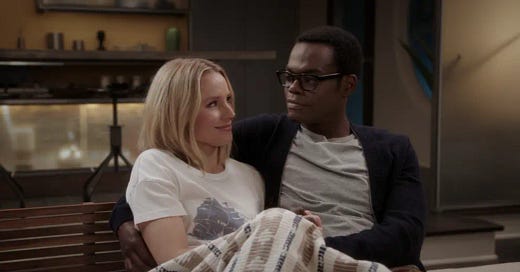The Last Stage of Grief: Remembering
Reflection post "The Year of Magical Thinking" by Joan Didion
for tatay taba:
"i love you more than one more day"
Quintana, "The year of magical thinking" by Joan Didion
I've read a lot of books that talked about grief, all of them well written and heavy in their ways. When your grief is fresh, you’re numb, and you avoid things that will worsen the pain. Reading books about it is like self-sabotage or some masochistic pity party of adding salt on your fresh wounds, so you avoid it. You avoid it until one sunny morning, you smell someone pass you by with the same fragrance - so you sit next to them in your hour long commute; or you see someone about their age, wearing the same jacket they love; or one of your new found friend likes their coffee the same way as the one you just lost. On those sunny days, when you had such a good day and you just want to tell them all about it. A thought, a question, a conversation that they’ll be the only one who will understand and see the sparkle in your eyes. On that perfectly sunny morning, you miss them a lot. In the early days, you'll probably cry the next half of the day, worse, you need a whole week off, but once you've had enough of those perfect sunny days —you'll enter the last stage of grief: remembering.
In the seven or five stages of grief, acceptance is the last stage —the last step into moving forward with life, is to accept that the love, the presence, and all that once was is over. My mother has always taught me that people come and go, she always echoed the beauty in impermanence, but I cling hard when I love. I clung for a long time, to the point that I'd rather set it all on fire than end it kindly. They said that in this stage:
In this last stage, individuals embrace mortality or inevitable future, or that of a loved one, or other tragic event. People dying may precede the survivors in this state, which typically comes with a calm, retrospective view for the individual, and a stable condition of emotions.
-or at least that’s what Wikipedia says
But grief in itself is love persevering, even if it occupies the smallest part of your heart; they are there, alive, beating in with you. You don’t just accept and move forward with your life — you don’t live in the sadness and the pain but you still carry their love and your love for them with you even if it’s by the means of remembering or looking up at the same sky you’re under and wondering how they are.
Joan Didion started the book with “Life changes in the instant. The ordinary instant.” Joan lost her husband, her partner, and her daughter. During her mourning, you can feel her spiral, of believing in Cats, in God, and hoping they come back home. You can feel her recalling how ordinary the day was, the routine, plating the dinner and suddenly John was gone. Joan missed him during days where she wished to talk to him, ask him questions, and talk about things to write about than using her notepad. Joan hear his voice whenever she have a writing idea, and she remembers to put down a note the same way John always have.
My grandfather died on a Tuesday after I finished my biochemistry quiz, hoping to travel to Quezon City that day to say a proper goodbye. Somehow, I didn’t get the chance to. I broke it off on a Sunday after he left for the Riyadh flight, and normally, I would prepare us a nice home-cooked meal on Wednesday nights to aid his growing distaste for hotel food. He bought a meal from Desi Inn, one of our favorite takeouts —and we officially parted ways that night. Ordinary days, routines —and then it’s over.
My first rodeo with grief, I would describe it as shock. Almost as if I entered an exclusive club that I knew existed but could never understand until I was there, sitting, feeling through all of it. A universal yet unique experience.
“People who have recently lost someone have a certain look, recognizable maybe only to those who have seen that look on their own faces. I have noticed it on my face and I notice it now on others. The look is one of extreme vulnerability, nakedness, openness.”
The Year of Magical Thinking, Joan Didion
Losing my grandfather felt like losing my big family bit by bit, my grandmother losing her routine, losing her memory, losing our routine of snacks and gossip midday. It felt like we were losing some glue that tied everyone together. The first time I walked into their shop without him, the silence was deafening. No more Yakult, not even a Mountain Dew. No more sweeping the front of your shop, and its noise at 7 am. No more 4 p.m. karaoke time that used to annoy me. No more bickering with my Nanay. No more him. That shop is dark, locked, and empty today, it's been that way for the last five years. Before he left, he reminded me how beautiful and funny I was am.
My second time wasn't about losing someone to heaven, but losing my identity. I have loved the idea of being someone's wife and being chosen so much that I lost myself in that idea. So when the dream was taken away multiple times, it broke me to pieces. I lost this When done, I had to reassemble myself like a broken mirror ball waiting to reflect light once again. I had to go through so much unlearning that I ended up realizing I never even wanted to be a wife to begin with. I'm not anyone's —I like the idea of that more. I grieved the delusion I had, the fulfillment I had playing house, the courage to just be devoted to a partner. All of that, gone. I went through a feminist book binge, and realized that romantic love is full of compromise and understanding, and maybe I'm just not one to be satisfied with that. It was some sort of ego death, something in the lines of my pre-frontal cortex developing, and just being a woman.
The idea that I come home to me, in those days where I felt most content, that's home. The idea that what's in-front of me, not my future, not all that I invested in the past —that is my home and I'm feeling every second of it.
Lately, I've been learning more to be secure in my own, to be able to give without question. To intertwine my fingers and my soul with theirs, even when I’m scared. To love someone without clinging to them and to walk away gracefully when the bell rings. I was drawn to what Quintana said because I think I'm learning to love people without wanting anything in return, without wanting another day. To hold them close, pull them in tighter, to laugh at their jokes, be vulnerable, even when I won’t have it anymore tomorrow. Life can be so cruel that for us to open up and connect, we also have to realize that we will be touched by grief one way or another —and when it comes, we will never be prepared enough.
“We don't know how we will grieve until we grieve.”
― Chimamanda Ngozi Adichie, Notes on Grief
"I love you more than one more day"
This stuck with me so much. Your twenties teach you so much about impermanence, whether it's through your living situations, a job, friendships, or love. No matter what you do, the people you connect with have so much to figure out, YOU have so much to figure out, explore, and answer —so, you panic because you feel like you’re running out of time, you’re behind even when no one’s looking. You take it personally when someone can’t choose you, even when they haven’t even chosen themselves yet. But that’s not how it should be. Your twenties (at least as my mom says) teach you about validating an experience as real, despite the length of the relationship, despite not being the end.
My favorite fictional couple will always be Chidi and Eleanor, how they have always found each other in each cycle (or scoured the “good place”), and how they helped each other be a better person. And in the end, no matter the desire to stay together, to have another day, to have one more kiss, one more everything—they let each other come to peace with themselves and their death —they were able to let go, happily. The idea that we all come home to ourselves, and that these people we meet and connect with are the ones who walk us safely back home —some a short time, some long, some the entirety of our lives.
“I finally understand why people get tattoos of those they have lost. The need to proclaim not merely the loss but the love, the continuity. I am my father’s daughter. It is an act of resistance and refusal: grief telling you it is over and your heart saying it is not; grief trying to shrink your love to the past and your heart saying it is present.”
― Chimamanda Ngozi Adichie, Notes on Grief
Despite living in the present, you will always look back on those sunny mornings and you will remember. You won't feel this wave of sadness, but just this bittersweet memory of them. It feels warmer. Despite loving someone more than another day, I will never deny that I do look back, and I always will remember them. So, get that matching tattoo, intertwine, take a lot of photos together, do dumb things together, reconnect with your old friends, dance together —wherever, whenever, tell them you love them, take the 9 hour flight to kiss the girl, call them, tell them how beautiful they are, laugh a lot —like a LOT until your gut hurts and you’re farting all day, do so much together that another day doesn’t matter. Do today, so you have something to remember.
“Picture a wave in the ocean. you can see it, measure it, its height, the way the sunlight refracts when it passes through and it’s there, and you can see it, you know what it is. It’s a wave. And then it crashes on the shore and its gone. But the water is still there. The wave was just a different way for the water to be for a little while. That’s one conception of death for a Buddhist. The wave returns to the ocean, where it came from, and where it’s supposed to be.” - The Good Place
Dear friends,
I do highly recommend these two books:
Notes on Grief 10/10
The Year of Magical Thinking 7.5/10
They perfectly describe the spiral of grief, it will make you feel seen and of course you will cry but you will be fine (you always have). Wrote this essay because it’s about to be the first week of June and I need an outlet. I am totally fine and not losing my marbles. But the theme of this year is to experience than hold on, but it doesn’t mean I’m not choosing them, I do, I badly do. I know we find security in commitment, and something long term. But what if? (I’m probably delusional) —what if? the commitment is there on the daily? what if it’s in the small things. The actions that aren’t loud. The thoughts that aren’t proclaimed. The choices. Those silent, intimate moments that you share and only are yours and theirs to come back and remember.
Please if you think I’m delusional, text me. I need help.





